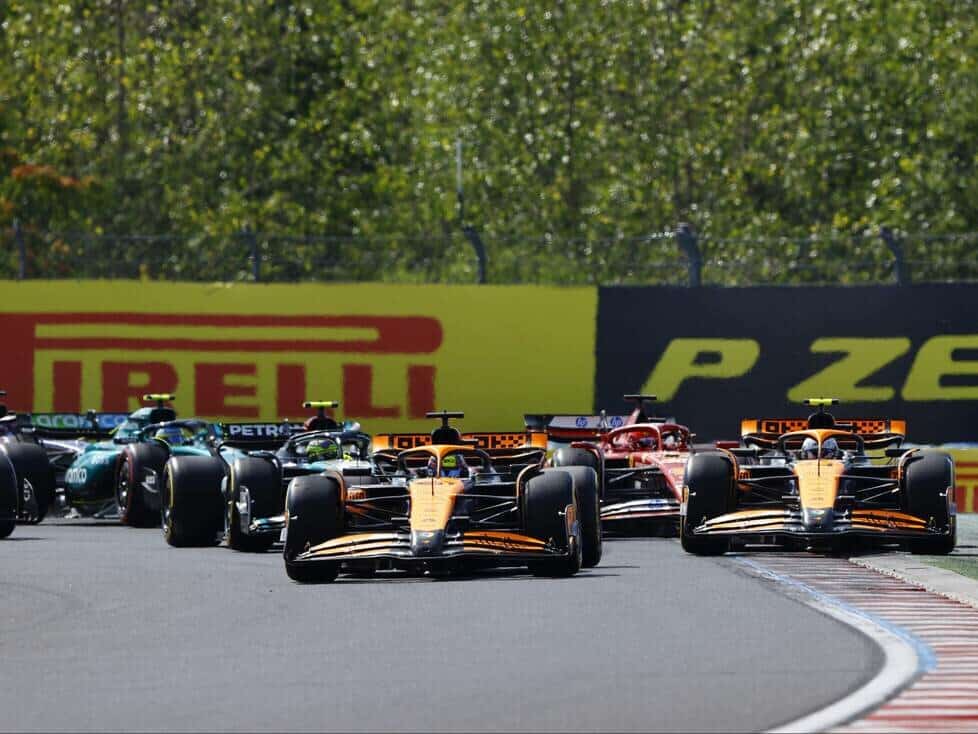On Sunday, we’ll publish our scores for all 20 drivers at the 2024 Hungarian Grand Prix, but we need your help!
It’s one thing who won the Hungarian Grand Prix. But it may be another to decide which drivers put in the best performance. Because in Formula 1, it’s not just the driver’s performance that counts. It’s the performance of the car at his disposal and, of course, that of the team that counts.
It is extremely difficult to look at the driver’s performance in isolation from the other factors. Nevertheless, we dare to try. Our scoring system consists of three pillars. Firstly: the fans. Our users now have the opportunity to rate the performance of all 20 drivers. Analogous to the school grading system from 1 (very good) to 6 (not good enough).
Secondly: the expert. As in previous years, Marc Surer grades the performances of Max Verstappen & Co. And thirdly: the editorial team. We conduct our own small vote in our Formula 1 core team.
The three pillars are then each given a third of the overall score for the weekend. In the end, we come up with the ultimate ranking – which is great to discuss!
Our format is inspired by the scores that soccer magazines, for example, award after every match. However, it was too subjective for us to simply grade as editors. In order to arrive at the most balanced judgment possible, we ask our experts and our users for their help
Guide: How should you award your grades?
For orientation: For a score of 1, a driver should have achieved something very special. For example, in relation to his teammate. Grade 2 is a very, very good performance by a world-class rider who is only missing one special element. Grades 3 and 4 are good and poor average respectively – so actually still quite good!
A grade of 5 is given for poorer performances, such as when a driver is clearly dominated by a team-mate throughout the weekend or delivers an average performance and then has an avoidable accident. A score of 6 should only be awarded in the “brainfade” category – i.e. when a driver has done something particularly stupid.
Try to rate objectively! Of course, it’s not always easy. But whether you’re a fan of Max Verstappen or Fernando Alonso shouldn’t play a role when awarding the grade. No one will ever be able to completely free themselves from personal preferences and prejudices. But at least trying to do so contributes to a fairer grading system.
Don’t be blinded by external influences! The grade should only take into account what the rider had in hand. For example: Are degrading tires a driver factor or an external factor? If the tires degrade because the driver applied the brakes shortly beforehand, this should have a negative effect on the score. If the tires degrade because there is a material defect, there should be no deductions
Weigh the race most heavily! That’s the only way to score points. The performance on Sunday should account for around 70 percent of the score. Qualifying on Saturday 25, and the three free practice sessions a maximum of five. A crash on Friday in which a front wing flies off may cost you a few minutes of practice time. One on Sunday might cost you victory.
What about a sprint weekend? Then the weighting shifts a little. In the sprint, the winner receives eight points. So you could say that sprint qualifying and the sprint race should make up a third of the score, qualifying and the Grand Prix the other two thirds. And the only free practice session is only included in the rating if something extraordinary has happened there. For example, a crash that jeopardized participation in subsequent sessions.
Remember who is in which car! A Red Bull is easier to drive faultlessly than a Haas. This is partly put into perspective when Verstappen is on pole with an outstanding lead and Nico Hülkenberg spins. That might not have happened to him in a Red Bull. But …
… Always ask yourself: if two drivers were in the same car, who would perform better? So one of the less talented drivers might get a 3 or 4 at most, even if his performance is strong. Because in the same car, even on a good weekend, he would still perform worse than Verstappen on a bad one.
Don’t take it too seriously! Of course, our grading system is an attempt to classify driver performance objectively. Ultimately, this is never 100 percent possible. Everyone rates things a little differently, and that’s okay. That’s why there are three pillars as a mutual corrective. You can criticize others for their opinions. But it should always be done with the necessary respect! For example, in discussions in our community on social media:

